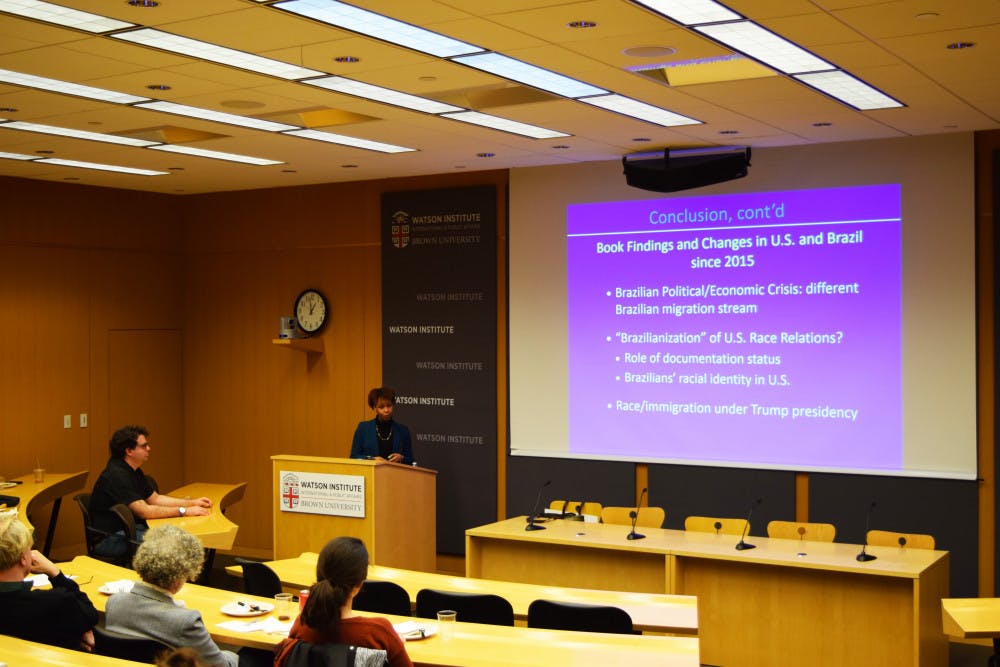Tiffany Joseph ’04, assistant professor of sociology at Stony Brook University and author of “Race on the Move,” gave a lecture titled Race, Migration and the Transnational Racial Optic Wednesday in the Joukowsky Forum of the Watson Institute for International and Public Affairs. The lecture was hosted by the Watson Institute and co-sponsored by the Department of Africana Studies.
In the lecture, Joseph discussed the premise of her book, which addresses contrasts between racial prejudices and perceptions of them in Brazil and the United States, as well as research that went into producing the book.
“This year, the key topic has been equality and social inclusion,” said James Green, director of the Brazil Initiative and professor of modern Latin American history and Portuguese and Brazilian studies, when introducing Joseph. Joseph’s research centered on this topic. She interviewed migrants from Brazil to the United States to gather their perspectives on racial equality.
“The objective of my book was to compare race in Brazil and the U.S. through the lens of individuals who lived in both countries and to examine retrospective racial conceptions before, during and after the U.S. migration,” Joseph said.
Joseph argues that migrants develop a “transnational racial optic,” which she defines in her book as “a lens which migrants use to observe, negotiate and interpret race by drawing simultaneously on transnationally formed racial conceptions from the host and home societies.”
Joseph found that many of the migrants she interviewed developed a transnational racial optic by maintaining social, cultural, economic, political and familial ties to their home while in their host countries, mainly through the ease of technology. She addresses this further by exploring it through social psychological theory, which describes how migrants see the world through socially constructed lenses such as race and gender.
Joseph also provided a brief history of Brazilian migration to the United States. It began informally in the 1960s, accelerated in the 1980s and began to flag in 2008 but is now picking up again as a result of crises in Brazil.
The research Joseph conducted may be pertinent beyond the scope of Brazil.
“Even though I was focusing on Brazilian return migrants in the book, there are similar experiences among other immigrants on the move, dealing with being a minority group and what that means in the U.S.,” Joseph said.
The concluding chapter of her book touches on her experiences with race in a transnational context in relation to those of the people she interviewed. “I made the choice to leave the U.S. to come to a place where I was racialized very differently,” Joseph said. “I wasn’t classified as white or black because of my skin tone. People talked a lot about phenotype rather than skin color. It made me think of the role of colorism in the U.S.”
Joseph ended the lecture by addressing the future of immigration to the United States under the administration of President-Elect Donald Trump. “Under the Trump presidency, this is something to think about with immigrants in general but specifically Brazilian immigrants and who is allowed here,” Joseph said.





